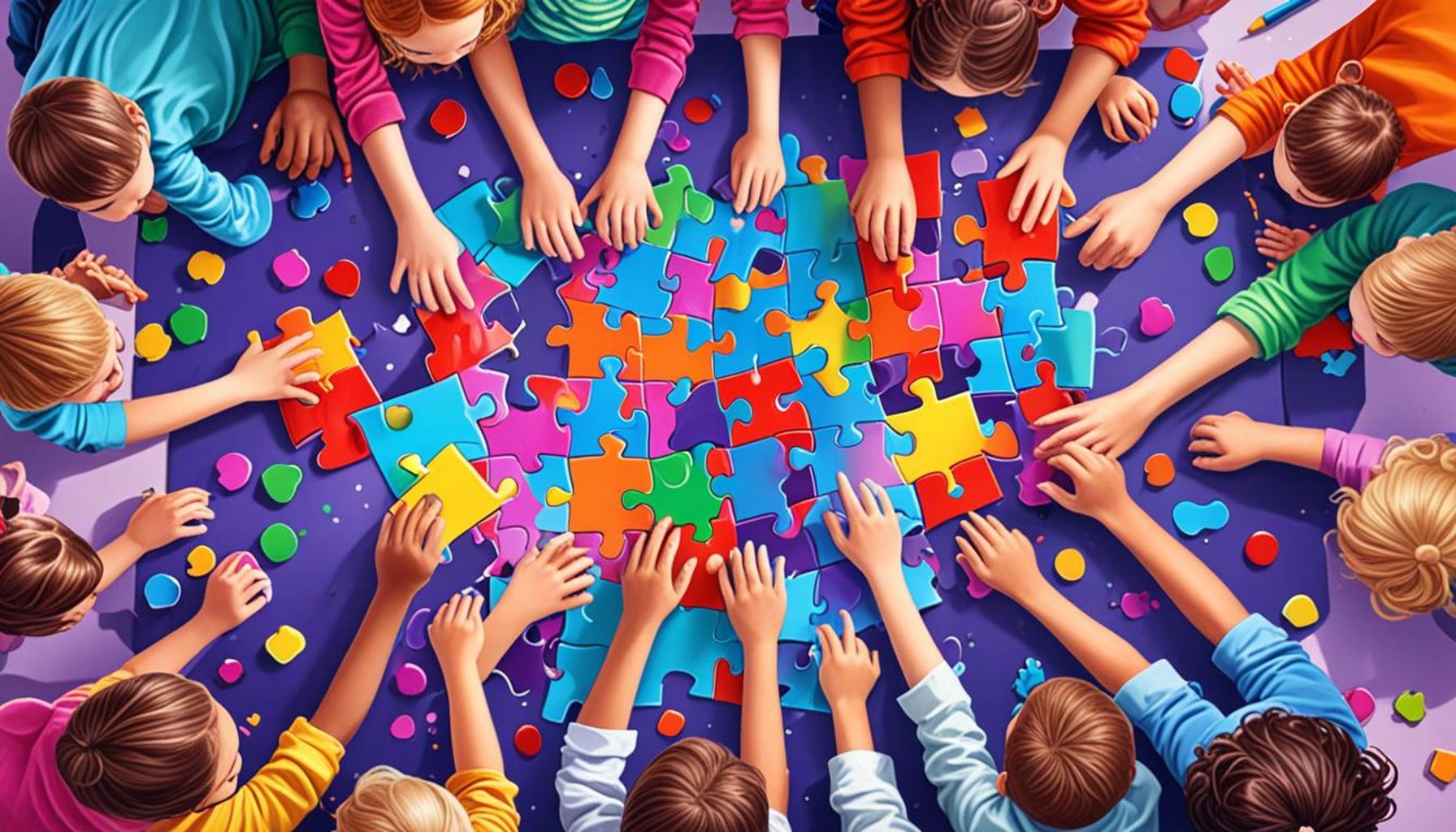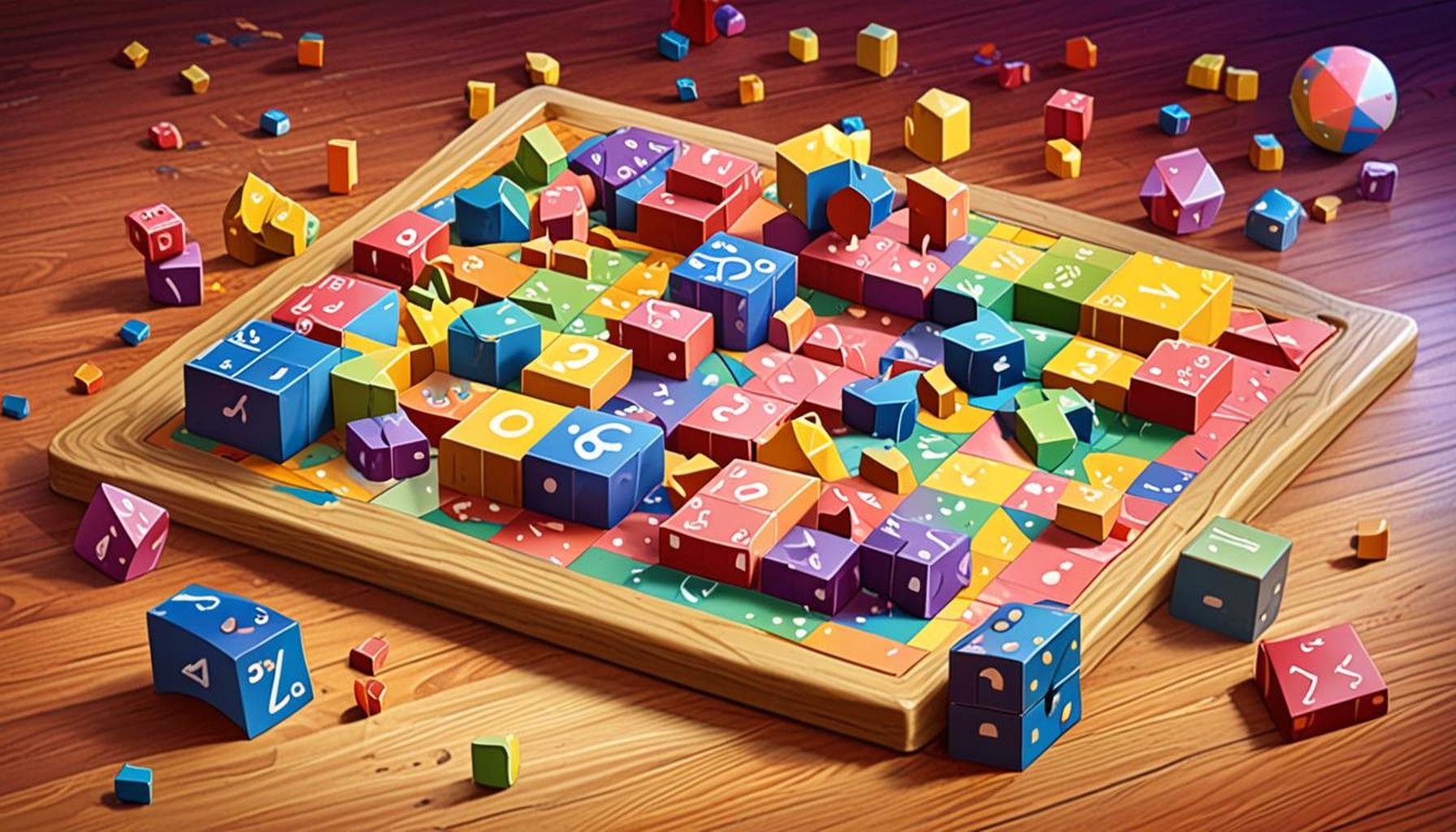How Strategy-Based Card Games Foster Critical Thinking in Seniors

Unlocking Cognitive Potential Through Play
In an age where cognitive decline is a prevalent concern among seniors, engaging in activities that promote mental sharpness has never been more vital. One such activity gaining traction is playing strategy-based card games, which not only serve as a means of entertainment but also as a powerful tool for enhancing critical thinking skills. As the landscape of leisure activities evolves, card games have emerged as valuable fixtures in the social and mental wellness of the older population.
The Cognitive Benefits of Card Games
Strategy-based card games offer various advantages for older adults. These games encourage players to:
- Analyze situations – Players must evaluate different scenarios and outcomes, weighing the pros and cons of each move. This rigorous analysis can help keep the mind agile, as each hand dealt presents unique challenges and opportunities.
- Make decisions – Choosing the best course of action under pressure enhances judgment. For instance, games like Poker require players to assess their cards against others and make calculated bets, fostering decision-making skills that are beneficial in everyday situations.
- Plan ahead – Anticipating opponents’ moves fosters foresight and strategic thinking. Games such as Bridge involve partners collaborating, making it essential to consider both one’s own strategy and that of the teammate and opponents, promoting comprehensive planning.
Building Social Connections
Moreover, these games are not just mentally stimulating; they also promote social interactions. Social engagement has been associated with various health benefits, especially in older adults. Seniors can:
- Strengthen relationships – Sharing game nights creates bonds and reduces feelings of isolation. Regular play within communities, whether in retirement homes or local clubs, fosters camaraderie and can make a significant difference in emotional health.
- Enhance communication – Discussing strategies requires teamwork and effective dialogue. Efficient communication while teaming up in games like Rummy or Canasta helps maintain cognitive function and improves social skills. This interaction can be vital for combating loneliness, as players enjoy shared laughter, friendly banter, and the thrill of competition.
As more seniors discover the benefits of such activities, it becomes essential to understand just how strategy-based card games foster critical thinking. These games can be an inexpensive, accessible way to keep cognitive challenges at bay while reinforcing social bonds. Researchers continue to emphasize that mental engagement through play—combined with regular social interaction—may be crucial to maintaining a sharp, active mind in the golden years. By participating in these enriching activities, seniors are not only investing in their mental health but are also cultivating a vibrant community around them.
DISCOVER MORE: Click here to delve deeper
Enhancing Decision-Making Through Engaging Gameplay
As seniors embrace strategy-based card games, they discover an engaging platform for refining their cognitive abilities. These games challenge players to assess their options critically, enabling them to make informed decisions. For instance, games like Bridge demand that players consider their hands, calculate probabilities, and predict their opponents’ moves. This multi-faceted approach not only strengthens their decision-making skills but also nurtures the ability to think critically in real-life situations, creating a valuable impact beyond the gaming table.
Critical Thinking Skills in Action
One of the most compelling aspects of strategy-based card games is how they mirror real-life situations requiring immediate and thoughtful responses. Seniors engaged in games like Pinochle or Texas Hold’em benefit from crucial cognitive exercises that enhance their ability to:
- Evaluate Risks and Rewards – Every card dealt can drastically alter the course of the game, prompting players to evaluate the risks of every decision. Gambling on a poor hand or retaining a strong one for a better score illustrates the importance of risk assessment, a skill essential in many aspects of daily life.
- Adopt Flexible Thinking – The dynamic nature of strategy-based card games permits seniors to practice adapting their strategies on the fly. A player may need to change their approach based on unforeseen developments, mirroring scenarios they might encounter in everyday decision-making, such as shifting plans or reassessing goals.
- Solve Complex Problems – Each game presents players with unique problems to resolve. Whether figuring out the optimal play to maximize points or devising strategies to block an opponent, these challenges stimulate problem-solving capabilities that are crucial for mental agility.
This intricate interplay of strategy, analysis, and decision-making reveals how engaging in card games can serve as a mental workout for seniors. Research indicates that consistent involvement in such activities substantially reduces the risk of cognitive decline in later years, reinforcing the positive outcomes of maintaining an active mind through play.
Translating Skills to Everyday Life
The cognitive benefits derived from playing strategy-based card games extend beyond mere entertainment; they cultivate vital skills that seniors can apply in their daily lives. The discipline of thinking through each move allows seniors to enhance their problem-solving abilities and judgment in real-world scenarios. For instance, organizing finances, planning travel itineraries, or even managing daily schedules becomes more manageable when armed with the analytical prowess honed through gameplay.
In addition, the camaraderie developed through these games fosters a sense of belonging and purpose, further contributing to mental health and well-being. This dual impact of mental stimulation and social connection is essential in combating feelings of isolation often experienced by seniors.
Understanding the Cognitive Benefits
Strategy-based card games have long been recognized as valuable tools for stimulating mental acuity, particularly among seniors. Engaging in these games not only provides entertainment but also encourages players to exercise their cognitive abilities in various ways. When seniors play games like bridge, rummy, or poker, they must constantly process complex rules, assess probabilities, and anticipate opponents’ moves. This continuous demand for strategic thinking fosters critical thinking skills that can enhance overall cognitive health.
Enhancing Decision-Making Skills
One of the most remarkable aspects of strategy-based card games is their ability to improve decision-making skills. Players are often faced with choices that can influence the outcome of the game. By weighing the pros and cons of various strategies, seniors develop the capacity to make informed decisions swiftly. This practice translates into daily life, influencing everything from financial decisions to personal relationships.
Encouraging Social Interaction
Beyond cognitive development, these games also promote social interaction, which is crucial for mental well-being. Playing cards with friends or family members encourages communication and fosters a sense of community. This social engagement is particularly important for seniors, who may experience isolation. Strategy games cultivate an environment where discussions, teamwork, and friendly competition can thrive, enriching their social lives and combating loneliness.
| Category | Key Features |
|---|---|
| Cognitive Engagement | Players must assess rules and strategies. |
| Improved Decision-Making | Facilitates informed choices and quick thinking. |
| Social Interaction | Encourages communication and connection with others. |
Incorporating strategy-based card games into the daily routines of seniors can lead to significant improvements in both cognitive functions and social interactions. This multifaceted engagement allows for an enriching experience that goes beyond mere entertainment, laying a strong foundation for lifelong mental health and community involvement.
DISCOVER MORE: Click here to uncover new strategies
Building Social Connections Through Strategic Competition
Another significant advantage of strategy-based card games for seniors lies in their ability to foster social connections. These games not only provide an intellectual challenge but also create an environment for social interaction, which is essential for maintaining mental health and enhancing critical thinking skills. The interactive nature of games like Canasta or Rummy encourages players to engage with each other, discuss strategies, and share insights, thereby stimulating mental discourse.
Collaboration and Communication
In many strategy-based card games, teamwork is a core component. This requirement for collaboration can significantly improve seniors’ communication abilities. Players often need to discuss their strategies and listen to their partners’ insights, which fosters effective verbal exchange and enhances interpersonal skills. This interaction can lead to longer-lasting friendships and support networks, which are vital for emotional resilience.
Moreover, as friendships develop through these card games, seniors often engage in conversations that stimulate their critical thinking further. Anecdotes about previous game experiences or discussions around personal challenges during gameplay offer a platform for seniors to reflect, analyze, and provide feedback to one another. Such reflective dialogues can boost cognitive processing, inspiring participants to view problems from various angles and approach future decisions more thoughtfully.
The Role of Competition in Stimulating Thought Processes
The competitive nature of strategy-based card games is another catalyst that enhances critical thinking in seniors. Engaging in games where winning is a key objective fuels motivation and encourages players to think strategically about each move they make. The desire to outperform opponents instills a sense of urgency that requires quick thinking and adaptability.
For instance, during a game of Hearts, players must continuously adjust their strategies as they gauge the intentions of their opponents. They must anticipate their opponents’ possible hands, which not only sharpens their analytical skills but also enhances their ability to comprehend others’ behaviors and thought processes. Such skill sets have real-world applications, empowering seniors to navigate various social situations or personal challenges with greater ease.
Studies Highlighting the Cognitive Benefits
Numerous studies underline the mental health benefits associated with strategic gaming. A 2021 study published in the Journal of Aging and Physical Activity found that seniors who regularly engaged in strategy-based games demonstrated improved cognitive functions, increased memory retention, and better decision-making abilities. The study suggested that the practice of engaging in such games provides a unique blend of cognitive challenge and social interaction, creating a dual stimulus that is beneficial for cognitive longevity.
Furthermore, as these games introduce layers of complexity and depth, seniors sharpen their ability to analyze situations critically, weigh options, and arrive at well-informed conclusions. These enhancements transcend the game itself, enriching their daily life, whether it be in family discussions, financial matters, or other decision-making scenarios.
Overall, cultivating a passion for strategic card games is not merely a pastime for seniors; it’s a fundamental pathway to developing critical thinking skills and enriching their social lives. With each game, they enhance their analytical prowess while forging connections that contribute meaningfully to their overall well-being.
DISCOVER MORE: Click here to dive deeper
Conclusion: The Lasting Legacy of Strategy-Based Card Games for Seniors
In summary, strategy-based card games serve as more than mere entertainment for seniors; they are powerful tools that foster critical thinking and social engagement. By challenging players to devise complex strategies and adapt to shifting game dynamics, these games enable seniors to enhance their analytical skills, memory retention, and decision-making abilities. The collaborative nature of games like Bridge or Pinochle not only encourages effective communication but also strengthens social bonds, creating a supportive environment that nurtures mental well-being.
Furthermore, the element of competition inherent in these games acts as a springboard for cognitive development. As participants seek to outmaneuver their rivals, they engage in the higher-order thinking necessary for evaluating options and predicting outcomes. This mental stimulation is critical, as studies highlight significant benefits such as improved cognitive functions and the reduction of age-related decline.
The interplay of competition, collaboration, and cognitive challenge found in strategy-based card games offers a unique opportunity for seniors – one that goes beyond mere leisure. As they navigate through intricate strategies and foster friendships, seniors not only sharpen their critical thinking skills but also enrich their lives with meaningful interactions. Therefore, encouraging seniors to embrace these games could pave the way for a vibrant and mentally stimulating lifestyle, equipping them to tackle challenges in everyday life with newfound confidence and insight. Engaging in strategy-based card games may just be the key to unlocking a brighter, more cognitively-enriched future for seniors.


